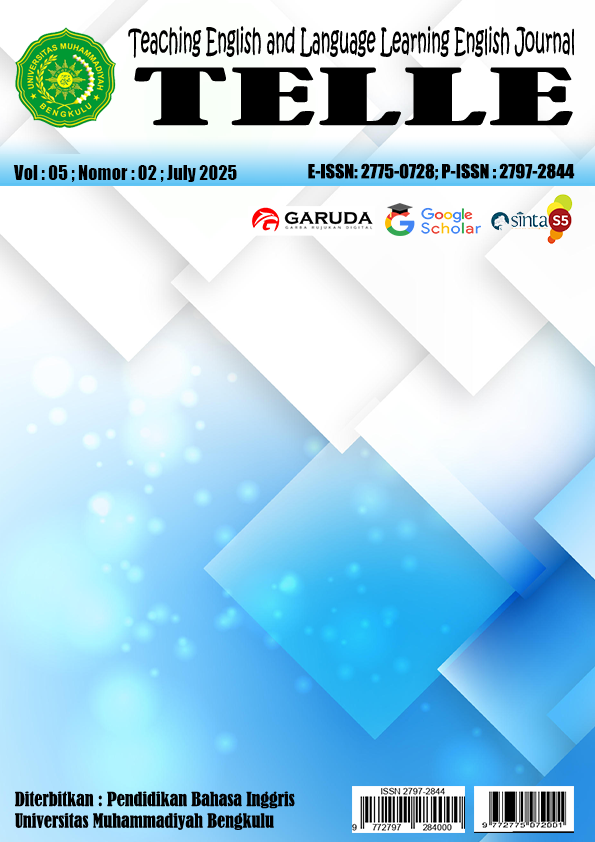Teacher’s Strategies in Teaching Reading Comprehension: A Case Study at a Junior High School
DOI:
https://doi.org/10.36085/telle.v5i2.8326Abstract
This study aims to explore the strategies used by an English teacher in teaching reading comprehension at a junior high school, focusing on how these strategies support students’ understanding and the challenges encountered in their application. Using a qualitative case study approach, data were gathered through classroom observations, semi-structured interviews, and document analysis. The findings reveal that the teacher employed a combination of strategies, including pre-reading vocabulary activation, think-aloud modeling, reciprocal teaching, questioning techniques, and post-reading summarization. These strategies positively influenced students’ engagement, comprehension, and metacognitive awareness. However, the teacher also faced several challenges, such as time limitations, diverse student reading abilities, and lack of authentic materials. The study concludes that effective reading instruction requires not only teacher initiative and skill but also institutional support and resources. This research contributes to the understanding of real-life teaching practices and emphasizes the importance of strategy-based instruction in improving students' reading comprehension in EFL contexts.





